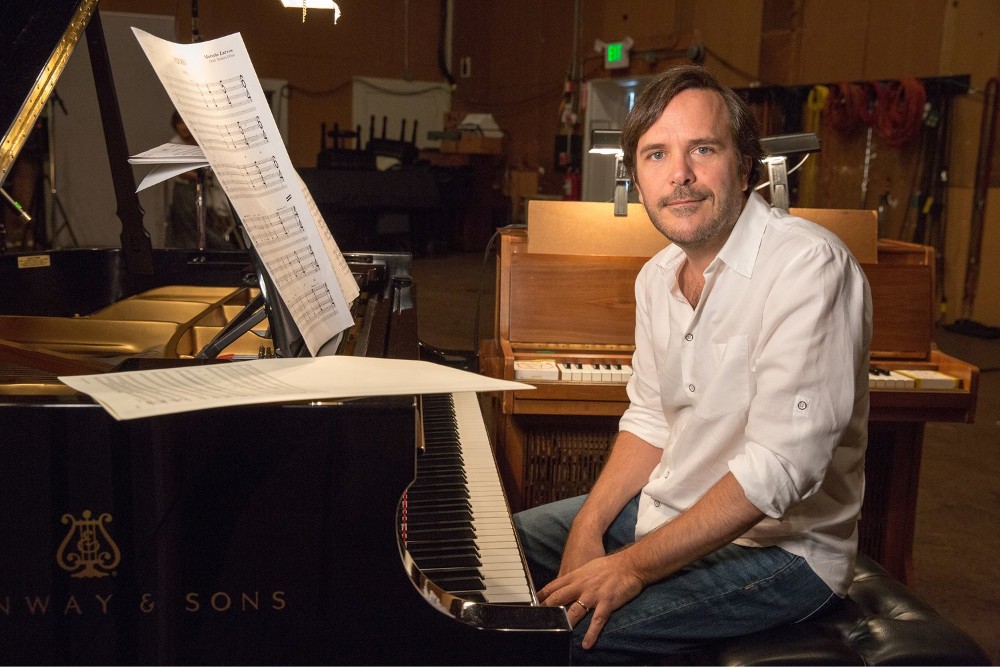
Brazilian-born Musician and Composer Marcelo Zarvos has been scoring music for picture for over twenty years now, but his name has been popping up in more and more projects as of late, most recently having his name and music on seven different films in just this past year.
Two of the higher profile projects for Zarvos continued his long-standing collaboration with director Antoine Fuqua that began with 2009’s Brooklyn’s Finest and continued through last year’s Emancipation, starring Will Smith, and into Denzel Washington’s third foray as Robert McCall in The Equalizer 3.
In between, Zarvos scored Roger Ross Williams’ Cassandro, starring Gael Garcia Bernal, and Eva Longorria’s directorial debut, Flamin’ Hot, George Tillman Jr’s biopic, Big George Foreman, as well as a remake of White Men Can’t Jump. Zarvos has also delved into scoring for television, most notably for Ray Donovan and The Affair.
Next up for Zarvos is his second collaboration with filmmaker Todd Haynes on his upcoming drama, May December, which has been running the film festival circuit since Cannes this past May. Below the Line got on Zoom with Zarvos to talk mainly about The Equalizer 3 and his long-running collaboration with Fuqua and Washington, but also getting into other aspects of hte work he does.
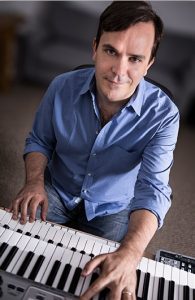
Below the Line: I knew a little bit about your past as a jazz pianist, so what was your transition to composing music for picture?
Marcelo Zarvos: I definitely had in my mind to do scoring since I was quite young, and I went through a lot of different times. As a teenager, I played rock and roll in Brazil, and I played in a pop band in my teenage years that was quite popular there. And then, I got very interested in jazz. I always feel I was gravitating between jazz, pop music and classical music. One of the things that I love about film is how those things can be combined, not only can, but should be. People expect these hybrid forms of music to happen in a score in a different way than the record industry where people are more thinking of categories.
My first job in film was given to me by a director who had heard me perform. I had a group here in New York that performed under my name. It was before I had any films or anything, I wrote music for this group that was an original chamber music, jazz world music thing. A director heard it and said, “I want you to do that in my film.” It happened to have a strong Brazilian element, this particular group, and the film was a Brazilian film, so it worked out great. It was a short film about Pele, and that was my first experience.
The transition was fairly seamless, at least for that first one, when somebody said, “I want you to do exactly that thing that you were doing.” Of course, I adjusted it and did it to the film, but essentially, it was a very similar style of Brazilian folk music with classical stuff, and not necessarily jazz, but there was definitely an element of a pulse and energy in the music that I think was well-suited for the film.
BTL: I can’t really think of any more different movies than Cassandro, Flamin’ Hot and Equalizer 3. You’ve been working with Antoine for a while. Was Brooklyn’s Finest your first movie with him?
Zarvos: Yes, the first of a very long list of movies. At this point, I would say Antoine is my longest-running and also most fruitful collaborator. We’ve done a lot of movies, but also documentaries, TV shows. We even did a defunct Quibi project. Not a lot of people can claim that. That went away went pretty fast, but we did something called FreeRayshawn. Those were all very different. That’s been my journey.
With a lot of film composers, you end up doing certain types of films. Who knows exactly why? I think that between Flamin’ Hot and Cassandro, there were some common things. Obviously, the fact that there was a Mexican influence, more overt in Flamin’ Hot and more abstract, let’s say, on Cassandro. That’s what makes it interesting for me, jumping from very different things; that is by far one of the things I love the most in my job.
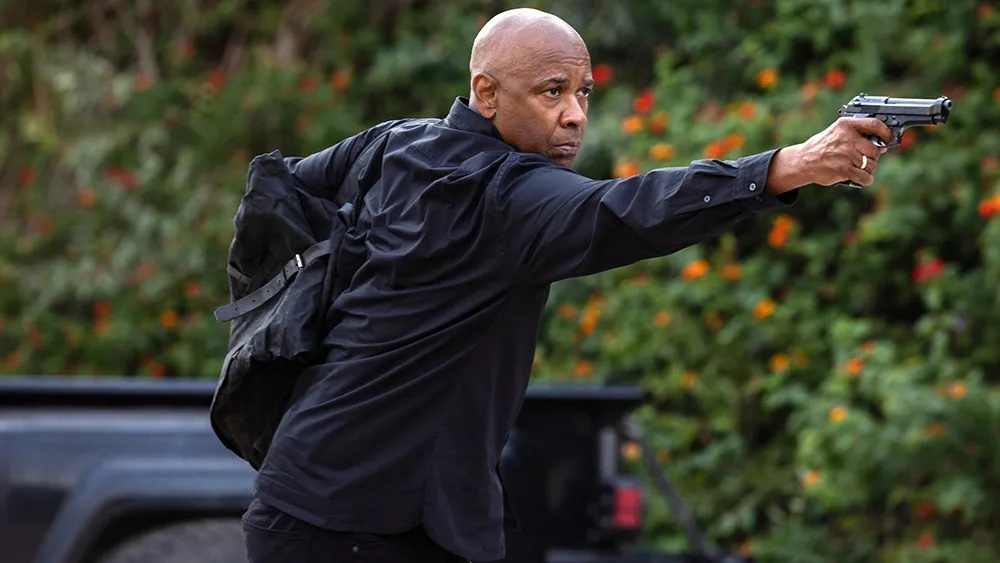
BTL: I was blown away by the score in Equalizer 3. It’s just so different from the score of the other Equalizer movies, probably since they were scored by Harry Gregson-Williams. When you’re working with Antoine on a new movie or project, what’s the starting point?
Zarvos: First, he talked to me a little bit before I read the script about some things in general. He said it takes place in Italy. It ended up not panning out very much, but there was a possibility of a love interest in the film. In the end, it didn’t feel quite right, but the woman who owns the restaurant, so that was an important character. I started to think about it, then I read it. I think one of the reasons Antoine hired me to do Equalizer 3 was, because of the setting, I think he felt like he wanted a different sound.
We had been working together for a while, and so has Harry. Harry is a composer I respect and admire greatly, but I think because of the Latin quality of the setting and the Italian thing and all of that… We had just done Emancipation last year. It felt like it was a good… rather than telling a composer, “Hey, I want you to change everything about in this one,” I think he felt like, “Well, let’s try a different composer and do something completely new.” In the end, there was never an ideal, “Let’s use some themes from the original Equalizers.” The idea was really a reset, McCall goes on a vacation, so it’s like a timeout in Europe, and the music follows.
BTL: There’s definitely a nod to The Godfather, because it’s set in Italy. I’m not sure how far you wanted to take that.
Zarvos: I think the setting and the way it was shot was interesting. At first, my thought was that we were going to do a much more electronic hybrid score, more like the other two Equalizers, but the way that the movie is shot is quite different. It’s Bob Richardson, one of our great DPs of all time, really going to town. It’s continuing the work that they did together on Emancipation, and so there was something very classic about it, very beautiful. Antoine hates CGI. He loves analog, real stuff, real buildings, real people, and the music had to follow.
I always feel like the movie will spit out what it doesn’t want. You try things, and we’re all looking and listening, and it felt like it needed to be more acoustic, more orchestral. The moment that you start even giving a little bit of an Italian taste for a movie about the Mafia, and the Camorra, in this case, how they actually call it.
Obviously, Godfather, both me and Antoine and the entire planet Earth loves that film and that score, so we thought about it as something that was inspiring. Obviously, we didn’t want it to be just like that, and it was more of a tip of the hat than anything else. It’s kind of the elephant in the room when you’re doing a movie in that setting and with those types of characters and the Mafia and all of that
BTL: I have to ask what is that screaming sound that comes in, which sounds amazing. Was that a guitar or a synthesizer or a combination of the two?
Zarvos: That’s a synthesizer, yes, yes, and we use some tracks. Part of that track comes from a source piece that we used and interspersed in a couple of places in the score. Antoine really loved that sound, so we used that as part of the fabric of the score.
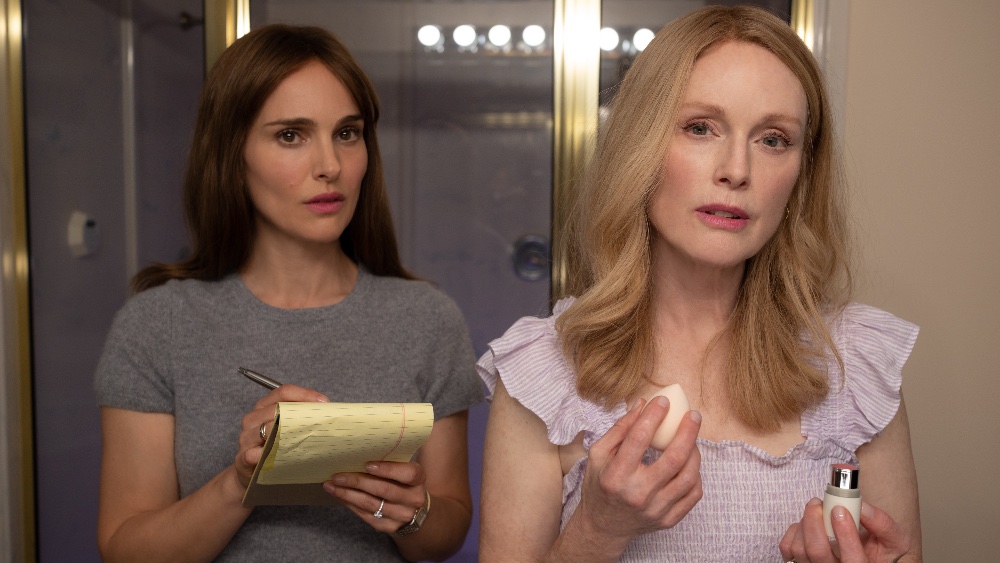
BTL: Obviously, you play piano, so do you generally start by sitting at piano writing themes? Do you end up playing most of the piano in the actual score?
Zarvos: I always play the piano. Actually, on May December, the Todd Haynes thing, some of the piano parts I did not play, but that also is a different animal. It was Michel Legrand‘s music [from The Go-Between], and it was a different kind of thing that we’re doing there. A lot of it is Michel Legrand, and some of it is mine, too. But yes, I always play the piano. Even in May December, I would say two-thirds of it, I play the piano, so it’s very immediate for me, it’s my instrument I know. I tend to write on the piano, even when I’m not going to ultimately use it. I tend to write on it just because it’s an extension of my years really at this point.
BTL: Do you always need to have picture or some kind of edit to start from or are you writing from the script stage?
Zarvos: I love to write from script, and I love to write wild themes. That’s the first thing that I do usually, even if in some cases, like the case of Equalizer, I read the script before they shot, so I had time to think about it and all that. Even in movies where I’m just given a rough cut, I watch it, and 90% of the time, I will go and write a lot of music just that feels inspired by the film. I tend to do that very quickly and write anywhere from five to 10 or 15 themes, and then I’ll sit back and start to think of what could actually work.
I feel like, for me, part of my process is to write away from picture. I feel if the music survives that way, and if the music lives on its own, I feel like that’s always a good sign. It doesn’t mean that it’s going to necessarily fit the film, but when it does, certainly like the music that I admire in other films, I feel like it stands to be on its own. I think that ultimately has a positive effect on the movie itself.
BTL: Where do you stand on temp music? You’ve obviously scored a lot of movies and composed many soundtracks, so some filmmakers must hear something you’ve done and maybe threw it into an edit before you get involved. Is that taboo? Can you work from that?
Zarvos: That’s never really happened with me, you know? I’m joking, of course. Ironically, I prefer and I don’t think I’m alone in this, I find it easier to deal with somebody else’s music on the temp than mine. Using mine is more of a mindf*ck, than the other way around, because I feel like when it’s somebody else’s music, even if I reinterpreted, it comes out as myself somehow. You bring it in and it comes out. When it’s my own, it can be a little trickier.
I’m not one of those composers who hates temp music. It can save a lot of time. In finding the tone of the film, sometimes things have to go fast. Most movies need some kind of a temp score for you to preview, even if it’s a smaller movie, you’re just going to do a preview for friends and family. Nobody previews a movie without music at this point. It can tell me a lot about what to do, but it can tell me even more about what not to do.
Sometimes, if they want a certain kind of music, it’s very quick to just put something there — music editor usually, or the picture editor will do that — and it can tell us a lot. There have been times when it’s frustrating, and they’re like, “Come on, closer, closer, closer,” but for the most part, I find that a movie is always a mystery to me, that we’re all trying to crack together. Music is a big part of it, and it comes very late.
The way I see it, we are part of the cast and we’re just other invisible characters in the film, and it takes time to figure it out. I think any tool available is a good tool, and that tends to be a good way to communicate. Sometimes, it could save me like a couple of weeks of work by simply trying an idea and just seeing is this in the zone or not?
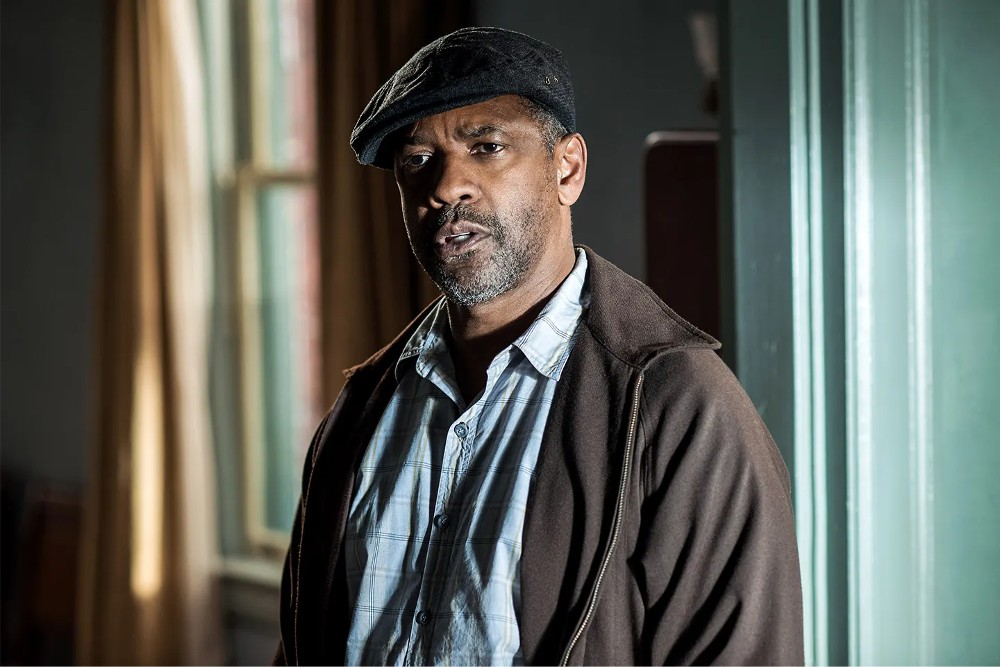
BTL: I also saw you’ve scored some of Denzel’s movies, too. When did it come about during your run with Antoine? When did you start scoring for Denzel?
Zarvos: It was after Brooklyn’s Finest, but before What’s My Name: Muhammad Ali, which was when I started working. There was a hiatus with Antoine of almost 10 years. I do believe Denzel must have reached out to Antoine — neither one of them would confirm or deny — but Denzel is very much his own person, and I think he had heard my music for Fences, and he loved what I did. We had a great meeting, and he’s somebody that trusts his instincts.
This ended up being a real come-together, because when I started working with Denzel on Fences, that’s when I also met Todd Black, who is Denzel’s long-time producer — I think he’s produced all of Denzel’s movies, but he also produced Emancipation and all the Equalizer movies, and he actually produced Cassandro as well. But for The Equalizer, it was like both tribes coming together, although they have a very, very long history — Todd and Denzel. But of course, Denzel and Antoine, I think that’s one of the great pairings of film history period, and Todd Black is a big part of that.
BTL: You seem to be doing a lot of projects, sometimes three or four movies a year, and TV series, too. Are you able to do multiple projects at the same time, or are you literally jumping from one right to the next?
Zarvos: I try to schedule it so the bulk of it… unless you do one movie a year, it’s very hard that they’re not going to cross a little bit, because schedules move and all of that. I tend to make it, so the crossing is not too much. You learn, as a composer, to multitask a little bit when need be. I like to keep them separate enough, so maybe I’ll be starting to write themes for one thing, and we’re really in the very end of another thing, that’s okay.
To start two projects at the same time is something that I avoid. I’ve been lucky with the schedules. I’ve been doing more film in the past few years, even though there were a few years before, it was more TV. There are ebbs and flows to this, but films, obviously, the commitment of time is a little bit less than a TV show.
Even a movie like Equalizer, I was working on it for six months, which is a long time for a movie, and that would be the average for a TV show. You work for at least six months on a TV show. I think the reason I was able to do all these movies is because they were movies and not TV shows. Otherwise, they would all have happened, really stacked maybe three deep like that.
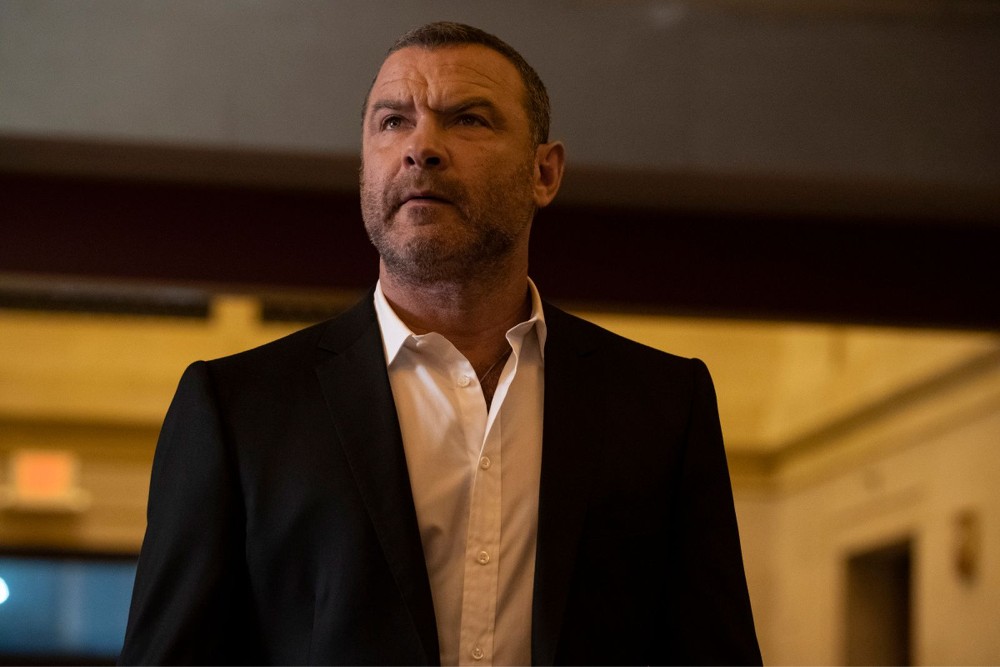
BTL: I was curious about working on a TV series, because there are more people involved, but I assume you’re mainly working with the showrunner, but does it get more complicated since there are so many producers involved?
Zarvos: In TV, the showrunner tends to have the role of the director. I was very lucky in the main shows that I worked on, and the really long-running ones like Ray Donovan and The Affair, where the showrunners were it. I never got notes from anybody, but them. That’s not to say that they were not listening to other voices, but I was lucky like that. I always find that a singular vision is one of the greatest things you can have in either film or TV, and I was lucky enough to have it, but I also know that’s not always the case. You can be in situations with a lot of cooks. It just hasn’t been my personal experience.
The Equalizer 3 is still playing in theaters but is also available to stream via VOD. Cassandro can be streamed via Prime Video, while Flamin’ Hot can be streamed via Hulu.
May December will get a limited theatrical release on Nov. 17 before streaming on Netflix starting Dec. 1.





